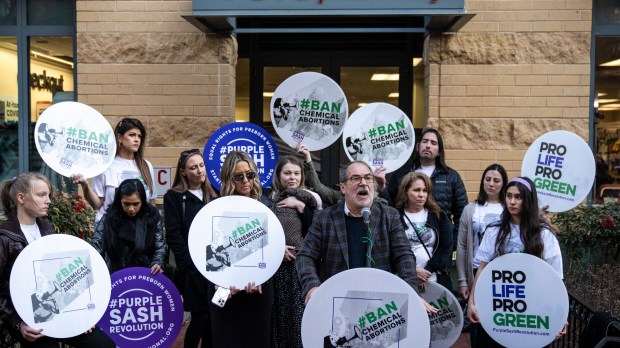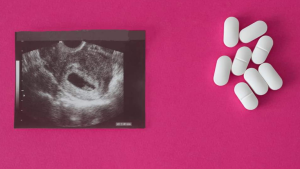As advocates are looking more and more to chemical abortions as a way to possibly make up for the lack of abortion access in the United States, a federal judge in Texas is about to make a decision that could ban even abortion pills.
Matthew Kacsmaryk of the U.S. District Court for the Northern District Amarillo Division could rule any day now on a case challenging the Food and Drug Administration’s approval more than 20 years ago of the abortion drug mifepristone. The case was brought by the religious liberty law firm Alliance Defending Freedom. If the court rules in their favor, mifepristone would have to be pulled from the market, at least temporarily, National Public Radio said.
Jenny Ma, senior counsel with the Center for Reproductive Rights, said that would have a greater impact than Dobbs v. Jackson, the Supreme Court case that overturned Roe v. Wade last June.
NPR said that since Dobbs, chemical abortion has become the most common form or pregnancy termination. It has been a growing concern lately, especially as the Biden Administration has expanded access to it. Two days before Christmas last year, the FDA changed its Drug Facts Label for Plan B One-Step (PBOS), a popular form of chemical abortion, removing language that, since 2006, had stated that it “may inhibit implantation (by altering the endometrium).”
“The FDA’s action has created the impression that PBOS and similar, generic levonorgestrel-based drugs used for ’emergency contraception’ (LNG-EC) have no effect on the survival of a human being conceived following sexual assault,” says a formal response to the FDA’s action from the National Catholic Bioethics Center.
“The FDA did not fully address a well-known concern that LNG- EC can prevent pregnancy even after it fails to prevent ovulation,” the NCBC said. “Since this important issue was not resolved and concerns about LNG-EC’s post-fertilization effects remain, the National Catholic Bioethics Center will maintain its longstanding position that Catholic health care institutions and professionals should ensure with moral certitude (that is, by excluding any reasonable doubts), at a minimum, that LNG-EC is not dispensed when it could not prevent ovulation but may well cause the death of an embryo. Catholics should resist legislation that requires dispensing of LNG-EC on the basis of a negative pregnancy test alone.”
In January, the FDA made a regulatory change that allows retail pharmacies to offer abortion pills to people who have a prescription.
Alliance Defending Freedom says that the only way the FDA could have approved chemical abortion drugs in 2000 was to use its accelerated drug approval authority, necessitating the FDA to call pregnancy an “illness” and argue that these dangerous drugs provide a “meaningful therapeutic benefit” over existing treatments.
“But pregnancy is not an illness, nor do chemical abortion drugs provide a therapeutic benefit over surgical abortion.” ADF says in its legal brief. “In asserting these transparently false conclusions, the FDA exceeded its regulatory authority to approve the drugs.”
Any appeals to Judge Kacsmaryk’s decision would go to the U.S. Court of Appeals for the Fifth Circuit and then to the U.S. Supreme Court.




